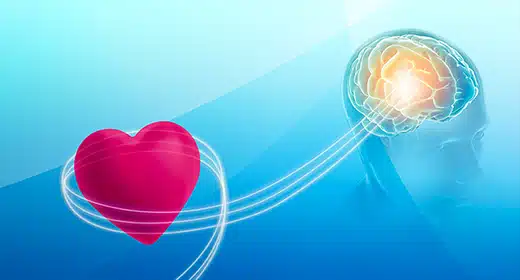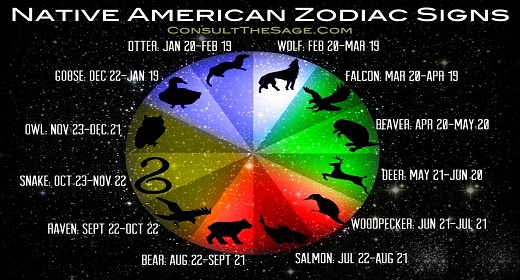by Katie Stone: The months and years following pregnancy and childbirth are a tender time for everyone involved. Human cultures throughout the world have revered the months following birth…
honoring the mother with ceremony, and setting up crucial community and family support networks to offer the mother and father time to adjust, heal, and recover.
Modern U.S. culture, in contrast, is less supportive. As a nation, we may pay a significant price in maternal and child health because of it. While psychedelic research had tended to focus on end-of-life anxiety, post-traumatic stress disorder (PTSD), treatment-resistant depression, and substance use disorders, is it reasonable to think they could help with postpartum depression also?
Before we dive into the discussion involving psychedelics and postpartum depression, let’s review a little more about this maternal health condition.
Postpartum Mental Health in the US Today
Postpartum depression impacts an estimated 1 out of 8 mothers annually in the United States. Mothers are more at risk for postpartum depression, but postpartum does not impact mothers alone.
Most obstetricians and gynecologists are not trained to offer the specific mental health support that pregnant and new mothers need, and less than 20% of people experiencing postpartum depression seek help. While it is standard practice to provide questionnaires assessing possible symptoms of postpartum depression during pregnancy and post-birth recovery, there is an urgent need for a more proactive approach to diagnosing and treating this condition.
What is Postpartum Depression?
Postpartum depression is a potentially serious mental health condition classified by debilitating depression following childbirth. It affects 10%-20% of new mothers and can cause long-term health impacts if not treated. Sudden shifts in hormones, adjustment to a new role as a parent, and disrupted sleep are just a few of the many stress factors that can underlie symptoms of depression. However, when the symptoms extend for several weeks or even months, it is vital to seek support.
People who experience postpartum depression report experiencing anxiety, guilt, suicidal thoughts, and diminished interest in usually enjoyable activities. Mothers additionally report difficulties sleeping, bonding with, or caring for their child. These symptoms can have an adverse impact on the infant and create a feedback loop of depressed mood and guilt that can prove harmful to both mother and child — but also the rest of the family.
What Causes Postpartum Depression?
To fully understand postpartum depression, one might look at how communities and cultures have long approached the period after childbirth. Support, nurturing, and care do not begin and end with the newborn infant but extend to the mother and family. Proper support systems may help prevent postpartum depression.
When there is an insufficient opportunity to recover physically and emotionally or to find a new sense of balance, it may perpetuate pre-existing mental health conditions or catalyze new ones. One of the most significant risk factors for postpartum depression is chronic prepregnancy stress — but anxiety and depression during the actual pregnancy are just as common. The cultural lack of awareness of and support for people throughout pregnancy and the childbirth process likely increases the risk of postpartum depression, so too may any internalized shame or stigma surrounding the birth.
There is also some evidence to suggest that the birth process itself can impact postpartum depression. For example, a 2017 meta-analysis found people who undergo cesarean sections may be at greater risk for postpartum depression. According to psychedelic researcher and father of transpersonal psychology, Stan Grof, cesarean births could have a unique impact on birth trauma. Not only for the mother but also the child whose birth process is interrupted, possibly in a moment of emergency or crisis. (See Psychedelics and Pregnancy.)
Current Treatments of Postpartum Depression
Though there are often several unique factors that may contribute to postpartum depression in mothers, the mainstream treatment options are generally limited to those used for treating major depression. Medications such as SSRI antidepressants may be prescribed, as well as other forms of therapy and peer support.
But drug developers are researching alternatives that address the unique needs of postpartum patients. In 2019 Sage Therapeutics introduced the first FDA-approved medication for postpartum called brexanolone. This drug is administered intravenously at an in-patient clinic over the course of 60 hours and is specifically developed to address hormonal imbalances thought to contribute to postpartum depression.
It’s obvious more needs to be done to support maternal health and provide better options for the treatment of postpartum depression. Supplementing one’s diet with herbs and food that support hormonal balance is always recommended to help address symptoms of postpartum depression, but in many cases, pharmaceutical support is helpful.
Research on Ketamine for Prevention of Postpartum Depression
Low doses of ketamine have been used clinically for anesthesia during childbirth for many years to help relieve labor pain. Researchers began experimenting with ketamine to see if using it during cesarean sections would impact the development of postpartum depression. This research has shown mixed results in this context.
A 2017 study found that low doses of ketamine administered during cesarean section did not help prevent postpartum depression. However, a more recent 2020 study countered this finding, suggesting that evidence is inconclusive and warrants further investigation.
Psychedelic Therapy for Postpartum Depression
No clinical trials are investigating psychedelic-assisted therapy for the treatment of postpartum depression — yet. However, compared to daily medications or going to a hospital to receive a 60-hour intravenous hormone infusion, there may be advantages to considering psychedelic therapies.
For example, psychedelic therapies rely on intermittent use of drugs typically spaced weeks to months apart. For nursing mothers, this increases the probability of being able to pump and store enough breast milk in advance that they can undergo treatment with a psychedelic therapy while still avoiding exposing their newborn. Drugs such as SSRIs (e.g. fluoxetine) are known to be transferred to infants in breast milk and can cause behaviors like fussiness or poor feeding.
Psychedelic therapies may represent breakthrough treatments for trauma or PTSD, which may help mothers who feel their depression is related to traumatic circumstances experienced during pregnancy or birth.
Anecdotally, parents are reporting that microdosing psychedelics can help them better relate to their child, and overcome symptoms of postpartum depression. While stories may abound online or in media, we may not know the potential benefits that psychedelics have on treating postpartum depression until research is conducted.
Final Thoughts
There is no formal research to date regarding postpartum depression and psychedelic therapies, though there are several reasons to believe it could be of benefit. The use of psychedelics in the postpartum period has special considerations, such as nursing and work requirements. The newborn may also be a factor in conducting psychedelic-assisted therapy, especially if families do not have the support needed. Given psychedelics’ strong track record in helping various mental health conditions by addressing underlying trauma, they are worth researching further for mothers experiencing postpartum depression.










































